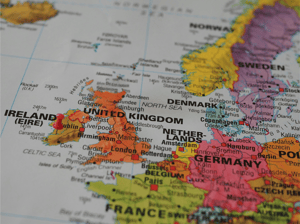$25M Investment Positions SK Tes as Leader in Lithium Battery Recycling
- SK Tes B facility in Singapore and Recupyl facility in France enable environmentally friendly battery recycling with high recovery rates and closed-loop solutions
- Facilities position SK Tes as a leader in the second-life battery market
- Energy Storage Systems (ESSs) enable commercial use of second-life batteries
SINGAPORE (06 November 2019) – SK Tes announced the opening of two new battery recycling facilities – SK Tes B in Singapore and Recupyl in Grenoble, France. The $25 million investment positions SK Tes as a leader in the lithium battery recycling market and the growing second-life battery space.
Each facility employs an innovative recycling process using proprietary in-house technology and equipment. Auto punching machines and shredders break end-of-life batteries into fine substances. Magnetic separators recover copper and aluminum, while a chemical treatment process recovers commodity-grade cobalt and lithium. This environmentally friendly process does not release secondary contaminants like heavy metals or VOCs into the atmosphere.
This unique approach yields some of the highest commodity-grade recovery rates in the industry. SK Tes’s closed-loop process eliminates the need to continually source raw materials, with recovered materials reused in the forward manufacturing supply chain, contributing to the circular economy.
SK Tes is also collaborating with strategic partners to develop Energy Storage Systems (ESS) — scalable, turnkey solutions that use retired EV batteries for commercial and residential energy needs. These systems store electricity using second-life battery cells and provide power for green energy plants, remote mining, and telecom base stations.
“Investing in technology that keeps SK Tes at the forefront of sustainability is in our DNA,” said Gary Steele, Chief Executive Officer of SK Tes. “Looking ahead, the battery space faces potential raw material shortages driven by the proliferation of IoT devices, EVs, and mobility solutions. Real-world challenges need real-world solutions. Our collaboration with the EDB and NEA has enabled us to develop an innovative recycling solution that positions Singapore at the center of the circular economy.”
Already a global leader in IT lifecycle services with a strong focus on environmental impact and compliance, SK Tes’s launch of SK Tes B, Recupyl, and ESS further reinforces its commitment to sustainability by ensuring batteries and their materials are recovered and reused to meet global demand.
“As the first facility in Singapore to recover precious metals from batteries using a new hydrometallurgy process, SK Tes B enables closed-loop battery recycling locally while enhancing the regional e-waste value chain,” said Mr. Damian Chan, Assistant Managing Director, EDB. “As EV adoption and solar deployment grow, SK Tes’s work in second-life ESS contributes significantly to our energy management ecosystem.”
“SK Tes’s innovative recycling solutions support Singapore’s Extended Producer Responsibility system for e-waste and align with our Zero Waste Masterplan to build a sustainable, resource-efficient, and climate-resilient nation,” added Mr. Ananda Ram Bhaskar, Deputy CEO (Environmental Protection), NEA.
See how SK Tes can help you today





